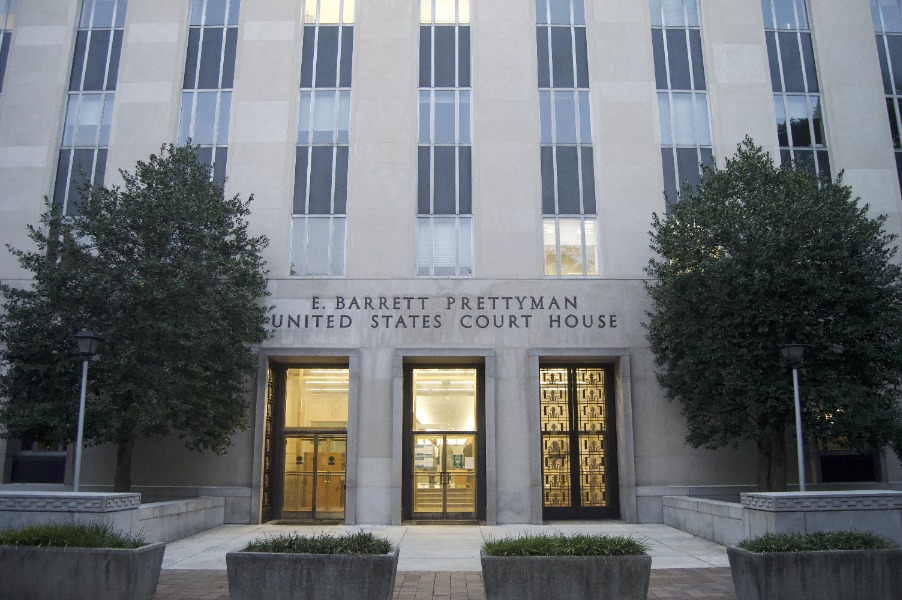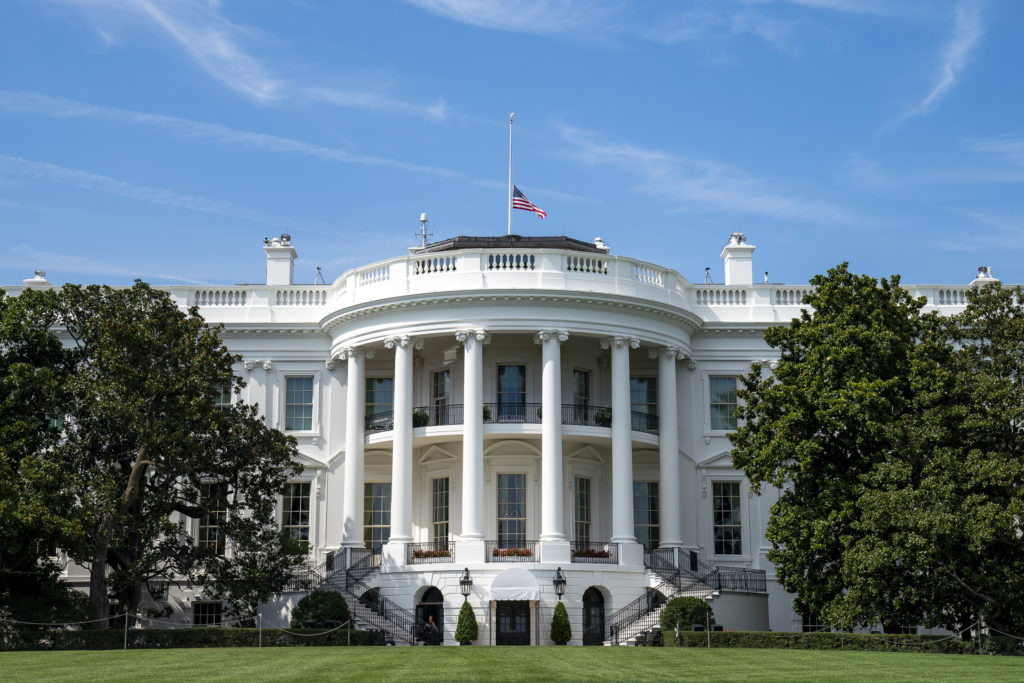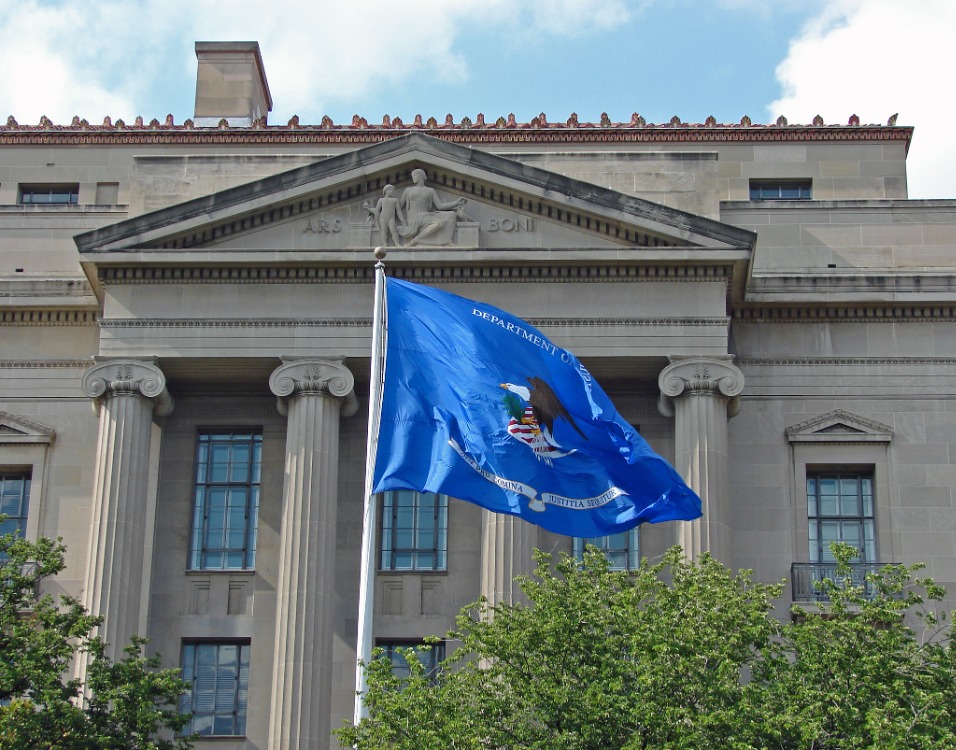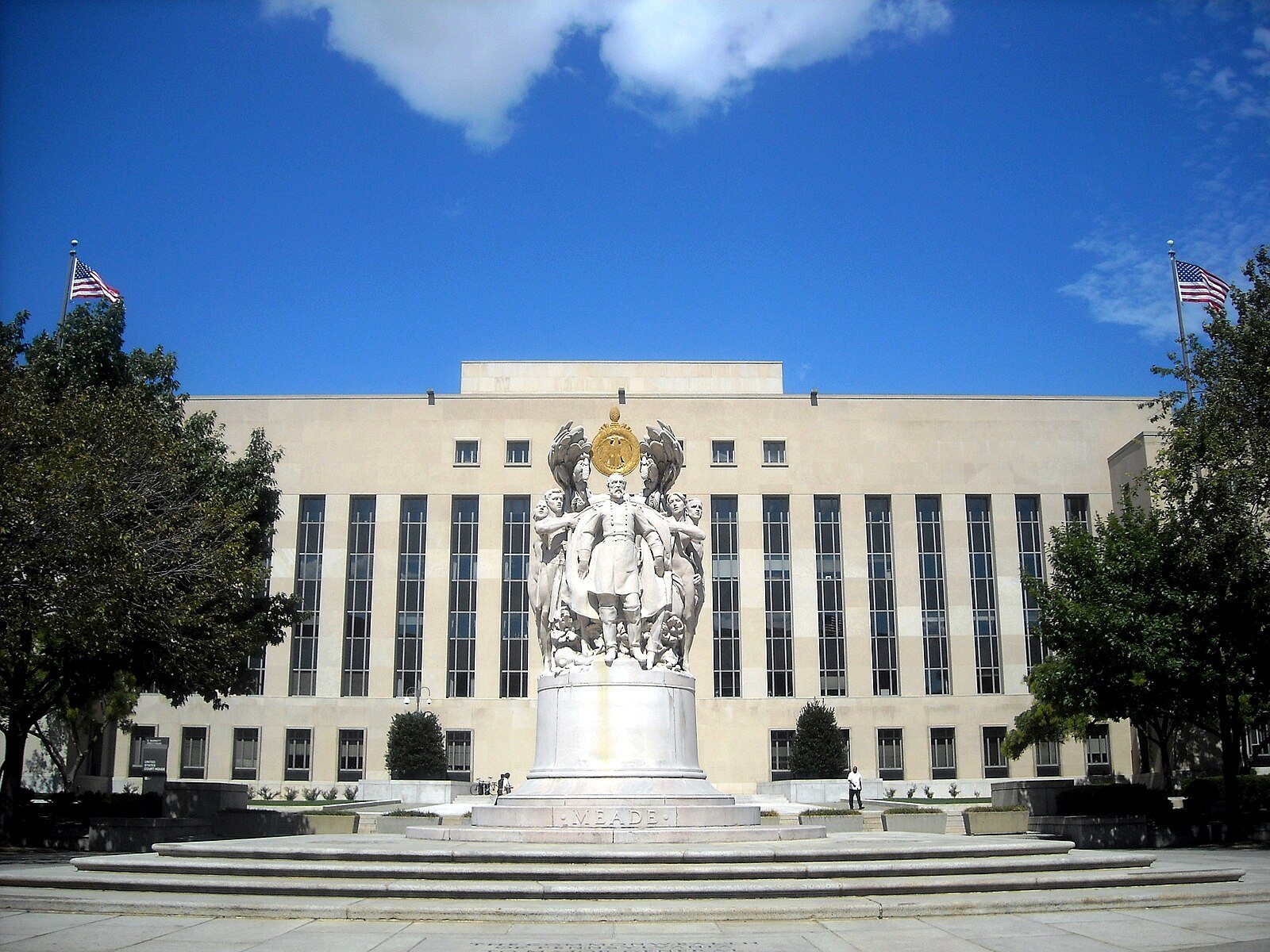Not So Immune: The D.C. Circuit’s Forceful Rejection of Trump’s Claim of Absolute Presidential Immunity

Published by The Lawfare Institute
in Cooperation With

As the days following oral arguments over Donald Trump’s claims of immunity from criminal prosecution turned into weeks, a certain anxiety set in among commentators—ourselves included—who had expected lightning-fast action from the appellate court.
What was taking the D.C. Circuit so long, many commentators wondered? Did the delay foretell a split among the judges over what seemed like an extravagant claim of executive power by a former president? More ominously, might it suggest that the panel felt no urgency about ruling on a matter that was stalling Trump’s criminal trial for trying to dishonor one presidential election even as he pursued another? Would the delay make it impossible for Trump to be tried in D.C. before the November presidential election?
This morning, the D.C. Circuit finally handed down its decision—and the answer to all of these questions became immediately clear. The reason for the delay, it turned out, was that the ideologically diverse three-judge panel was writing a 57-page opinion that is thorough, comprehensive as to the several issues Trump had raised, and importantly, unanimous. The per curiam ruling holds, with no concurrences or dissents from any judge, that Trump, as a former president, is not shielded from criminal liability for his role in attempting to overturn the 2020 election. It holds that the separation of powers does not prevent the courts from examining presidential conduct under criminal law. And it holds that conviction in the impeachment process is not a prerequisite for criminal liability for a former president.
None of these holdings comes as much of a surprise. Trump’s arguments were always a stretch, and anyone who listened to oral arguments in January could tell that the panel was highly skeptical. Still, the decision is a major blow to Trump’s efforts to gum up his D.C. trial with delays and legal complications. And, while the appeals court’s decision arrived less swiftly than commentators wished, its thoroughness and unanimity should discourage Supreme Court review—which may well end up fast-tracking the Jan. 6 case for trial.
The ruling is framed as a per curiam opinion, indicating that it represents the views of the court itself, not those of individual Judges Michelle Childs, Karen LeCraft Henderson, and Florence Pan. The unanimity is notable given the composition of the panel. While Childs and Pan were appointed by President Biden, Henderson is an appointee of President George H.W. Bush. She is also the longest serving judge on the court not to have yet taken senior status and one of the court’s stauncher conservatives. Recently, she was in the extreme minority of the D.C. Circuit in opposing judicial resolution of congressional efforts to secure the testimony of former Trump administration White House Counsel Don McGahn, in ways that effectively preserved then-President Trump’s broad claims of presidential authority.
In other words, despite Donald Trump Jr.’s effort to dismiss the D.C. Circuit’s ruling as so much “partisan hackery,” this is a ruling issued by a panel of ideologically diverse judges, including one judge who has been willing to vote favorably for Trump’s position in previous cases. It’s almost certainly a fatal blow to any hopes Trump may have had of faring better before the whole D.C. Circuit by petitioning for a rehearing en banc.
What follows is a summary of the court’s forceful decision, the implications of the ruling, its prospects before the Supreme Court, and its likely impact on Special Counsel Jack Smith’s Jan. 6 trial schedule.
Jurisdiction
The case came before the D.C. Circuit as an appeal by Trump from U.S. District Judge Tanya Chutkan’s ruling denying Trump’s motion to dismiss the prosecution in the Jan. 6 case against him. Both Trump and Special Counsel Jack Smith accepted that the appeals court had jurisdiction to hear Trump’s appeal under the collateral-order doctrine, which allows certain legal questions to be appealed and resolved prior to the conclusion of a trial, instead of only after a trial court decision. In other words, both parties agreed that the D.C. Circuit had jurisdiction to hear Trump’s appeal on the immunity issue before his trial, rather than after its conclusion.
But in an amicus brief, the watchdog group American Oversight contended that the court’s review was barred by the Supreme Court’s 1989 holding in Midland Asphalt Corporation v. United States. In that case, the Court held that the collateral-order doctrine should be interpreted “with the utmost strictness in criminal cases” and specifically directed that any orders relating to a “right not to be tried” must “rest[] upon an explicit statutory or constitutional guarantee that trial will not occur[.]” As most of Trump’s immunity arguments rest on implications from the Constitution, rather than on explicit assertions of immunity like those found in the Double Jeopardy Clause or the Speech or Debate Clause, American Oversight argued that Trump’s immunity arguments should be addressed only after the conclusion of his criminal trial. (Stanton Jones, counsel for American Oversight in this matter, recently appeared on the Lawfare Podcast to discuss this argument and other aspects of the case.)
The matter was important because if the appeals court agreed that it lacked jurisdiction, the case might have gone up on the appellate ladder twice, rather than only once. Because of this question’s broader relevance to other criminal cases, the Supreme Court—or the full D.C. Circuit—might have felt compelled to review this question, leaving the presidential immunity for separate resolution later on. In other words, by rejecting this jurisdictional barrier and accepting that Trump has a right to resolve his immunity defense before proceeding with his criminal trial, the court may actually have shortened the time frame in which that criminal trial may yet proceed.
The panel found that Midland Asphalt’s explicitness requirement should not be taken quite so literally. Warning against “mak[ing] a doctrinal mountain out of a verbal molehill,” the panel concluded that the Supreme Court’s use of “explicit” in Midland Asphalt was intended to contrast two different types of legal rights, not to draw a hard limit on what sorts of legal rights can be subject to appeal before the end of trial. It cited an array of Supreme Court and D.C. Circuit precedents suggesting that both had read Midland Asphalt this way in the past. On a more pragmatic note, the court also noted that it would be “‘unseemly’…to require that former President Trump first be tried in order to secure review of his immunity claim after final judgment[,]” grounds that had led the Supreme Court to carve out special procedural rules for sui generis cases involving the president in the past. Moreover, the panel found no clear grounds for distinguishing explicit from implicit claims for immunity in relation to the collateral order doctrine, as both have equal bearing on the finality of any judgment.
Absent the sort of hard explicitness requirement that the amicus had read into Midland Asphalt, the court determined that these sorts of considerations were reason enough to allow Trump’s appeal to proceed, despite the usual presumption against interlocutory appeal.
The Merits
Trump made three arguments in support of broad presidential immunity from criminal prosecution: first, that separation-of-powers considerations bar courts from reviewing official presidential actions; second, that policy concerns linked to the separation of powers should preclude criminal prosecution; and third, that the Impeachment Judgment Clause prohibits the criminal prosecution of presidents who have been impeached but not convicted.
The panel addresses and rejects each of these arguments in turn. In doing so, it emphasizes that “our analysis is specific to the case before us, in which a former President has been indicted on federal criminal charges arising from his alleged conspiracy to overturn federal election results and unlawfully overstay his Presidential term.”
First, on the question of separation of powers, Trump argues that “neither a federal nor a state prosecutor, nor a state or federal court, may sit in judgment over a President’s official acts, which are vested in the Presidency alone.” For this dramatic statement, he draws on Marbury v. Madison, quoting Justice John Marshall’s statement that official acts by the president “can never be examinable by the courts.” But, the court writes, “Former President Trump misreads Marbury and its progeny.” The panel points to the distinction drawn in Marbury between “discretionary acts,” which are fundamentally matters of political judgment, and “ministerial acts,” which the president is bound to carry out by law or the Constitution. Courts can review the latter, but not the former, the court writes. And for that reason, the court found that it can also review instances in which the president has breached a ministerial obligation: “[W]e may review the President’s actions when he is bound by law, including by federal criminal statutes.”
Under this reading, Marbury “necessarily permits the Judiciary to oversee the federal criminal prosecution of a former President for his official acts because the fact of the prosecution means that the former President has allegedly acted in defiance of the Congress’s laws.” Because Trump is alleged to have broken the law—and recall that, at the motion to dismiss stage, where the case currently sits, the court must accept the allegations in the indictment as true—“those acts were not properly within the scope of his lawful discretion.”
The court then turns to Trump’s second argument—that absolute criminal immunity is necessary to ensure the proper functioning of the executive branch. Otherwise, Trump argues, presidents would not be able to act freely for fear of potential prosecution after leaving office. Here, the panel draws on the Supreme Court’s reasoning in Nixon v. Fitzgerald—finding absolute civil immunity for official presidential acts—in balancing the “constitutional weight of the interest to be served against the dangers of intrusion on the authority and functions of the Executive branch.”
The judges are not impressed by Trump’s admonitions of a potential chilling effect on future presidents. They note that “past Presidents have understood themselves to be subject to impeachment and criminal liability … so the possibility of chilling executive action is already in effect.” While Trump argues that future presidents unprotected by criminal immunity will be subject to harassing prosecutions after leaving office, the panel is less worried, pointing to the variety of protections—ethical obligations within the executive branch; the constraints of the grand jury system—that already exist against politically motivated charges. What’s more, the panel rightly notes that past presidents have not believed themselves immune from possible prosecution and yet don’t appear to have been deterred from taking aggressive actions. In fact, the panel suggests, what Trump calls a chilling effect may actually be a positive thing: “[T]he prospect of federal criminal liability might serve as a structural benefit to deter possible abuses of power and criminal behavior.”
Far more convincing, in the court’s view, are the considerations that weigh in favor of criminal accountability for presidents. “The public has a fundamental interest in the enforcement of criminal law,” the judges write, citing the Supreme Court’s ruling in Trump v. Vance—which held that a sitting president may be subject to criminal investigative process. The executive branch, too, has an interest in such enforcement, expressed most clearly in the obligations imposed on the president by the Take Care Clause. “It would be a striking paradox if the President, who alone is vested with the constitutional duty to ‘take Care that the Laws be faithfully executed,’ were the sole officer capable of defying those laws with impunity,” the court writes.
The interests for prosecution are weighty in this case because of the nature of Trump’s alleged offenses. Here, the court factors in the uniquely anti-democratic nature of Trump’s conduct, which sought not only to “violate the rights of individual citizens to vote and to have their votes count” but also to obviate the role of the democratic process as “the most fundamental check on executive power.” For the court, the public interest is inextricably linked to the preservation of democracy itself.
Finally, the panel addresses Trump’s argument that the Impeachment Judgment Clause prohibits his prosecution due to his Senate acquittal. The clause states that the “party convicted” in an impeachment “shall … be liable and subject to Indictment, Trial, Judgment and Punishment”—so in Trump’s view, because he was not convicted, he cannot be prosecuted on the basis of the same conduct.
The court suggests that this framing “potentially narrows the parties’ dispute”: “If the Clause requires an impeachment conviction first, [Trump] may not be prosecuted; but if it contains no such requirement, the Clause presents no impediment to his prosecution.” What’s more, Trump’s argument appears to concede that the immunity he seeks can’t be entirely absolute: After all, he’s suggesting that criminal prosecution would be permissible following a conviction in impeachment proceedings.
“Trump’s interpretation runs counter to the text, structure and purpose of the Impeachment Judgment Clause,” the panel writes. Just because a former president can be prosecuted following an impeachment conviction doesn’t mean that a former president who wasn’t convicted during impeachment can’t be prosecuted. “The Framers knew how to explicitly grant criminal immunity in the Constitution,” writes the court—and they did not do so here. The court seems exasperated with Trump’s arguments in this section and picks apart his arguments aggressively. It dispatches quickly with his related argument that the Double Jeopardy Clause prohibits his criminal prosecution for conduct over which he was already impeached, writing, “Impeachment is not a criminal process and cannot result in criminal punishment.”
Reading through the opinion, it’s striking how little time the court spends on one of the key issues that many people—including us—had thought would be at the core of Trump’s arguments for criminal immunity. Only glancingly does the panel address the question of whether immunity applies to official acts carried out in the course of the president’s duties, versus acts outside the “outer perimeter” of presidential responsibilities—a distinction drawn by the Supreme Court in Fitzgerald and Clinton v. Jones with respect to presidential civil immunity. Instead, as Judge Chutkan did in her district court ruling on the matter, the D.C. Circuit simply finds that there is no categorical criminal immunity, and leaves it at that.
Perhaps the court didn’t want to fight its way through the tangle of determining which of Trump’s actions as charged in the indictment were or weren’t official conduct. But there are hints throughout the ruling about how the panel might have thought about that distinction. The most explicit reference comes in a footnote where the court points to its previous ruling in Blassingame v. Trump, which denied Trump immunity from civil suit over his conduct on Jan. 6 on the grounds that he was acting as an “office-seeker” rather than an “office-holder.” For this reason, the judges write, it is “doubtful” that all the conduct described in the indictment constitutes an official act.
What Happens Now?
The panel’s most aggressive move was not in the opinion itself, which is straightforwardly correct, but in the judgment that accompanies it on the docket. There, the panel gave the following directions regarding the “issuance of the mandate,” a next step that must take place before Judge Chutkan can resume Trump’s criminal trial:
The Clerk is directed to withhold issuance of the mandate through February 12, 2024. If, within that period, Appellant notifies the Clerk in writing that he has filed an application with the Supreme Court for a stay of the mandate pending the filing of a petition for a writ of certiorari, the Clerk is directed to withhold issuance of the mandate pending the Supreme Court’s final disposition of the application. The filing of a petition for rehearing or rehearing en banc will not result in any withholding of the mandate, although the grant of rehearing or rehearing en banc would result in a recall of the mandate if the mandate has already issued.
In effect, this means that Trump can stop the issuance of the mandate only by petitioning the Supreme Court for a stay pending a full application for certiorari, not by seeking rehearing before either the panel or the en banc D.C. Circuit. This is an extremely strong vote of confidence by the panel of how its decision might fare in front of the full D.C. Circuit. Such a demanding time frame for Trump to file and for the court to consider a petition for a rehearing en banc might otherwise be seen as problematic or even disrespectful by other judges on the court. Assuming the panel is correct in its reading of its fellow judges, this move effectively forecloses one of the procedural steps that Trump might have otherwise used to further delay final resolution of the dispute, bringing the date of trial ever closer. Or at the very least, it would require the full court to intervene actively to stay the mandate if it wants to look at the case—which seems altogether unlikely.
As for the Supreme Court, the court’s judgment doesn’t do much other than compel Trump to seek a stay of the mandate pending a petition for certiorari within the week. Once he does, the mandate will be stayed until the Supreme Court decides that application. In short, it makes clear that the fate of Trump’s legal challenge—and thus the likelihood that he faces the D.C. criminal trial before the 2024 elections—lies entirely in the Supreme Court’s hands now.
There is still plenty of time, if the high court acts with reasonable dispatch, for Judge Chutkan to run a trial before the election. While Chutkan has jettisoned the March 4 trial date, if the mandate were actually to issue on Feb. 13, a trial date in mid-May would be entirely plausible. Unless the Supreme Court decides to eat up fully three more months, there is no obvious reason why a trial shouldn’t be possible before Election Day.
What the Court will do, of course, is anyone’s guess. The conventional wisdom is that the Supreme Court will feel the need to weigh in on a matter as weighty as presidential immunity, adding weeks or months to the timeline before Trump is likely to face trial for the events of Jan. 6. We’re not so sure: The justices have already declined to weigh in on the matter once before, when they rejected Special Counsel Jack Smith’s motion for expedited consideration this past December. And it has proved content to let the D.C. Circuit’s judgment—or that of another appellate court—hold on other politically charged matters involving former President Trump, including a number of 2020 election challenges by him and his supporters and his efforts to enjoin the transfer of his presidential records to the Jan. 6 committee. Nor would this posture necessarily be unusual, as the Supreme Court has been content to let the D.C. Circuit be the effective last word on any number of legal questions relating to the inner workings of the federal government.
Moreover, in producing a unanimous, ideologically diverse opinion that seems positioned to speak for the D.C. Circuit as a whole, the panel has made this route as easy as possible for the Supreme Court, if it chooses to pursue it. What’s more, as the panel states quite explicitly, it narrowly tailors its holding “to the case before [them], in which a former President has been indicted on federal criminal charges arising from his alleged conspiracy to overturn federal election results and unlawfully overstay his presidential term.” In this sense, the panel’s holding may be distinguishable from some future case involving a former president accused of conduct dissimilar to what Trump is accused of and more plausibly suggesting immunity. This may make some justices more willing to let the current opinion stand.
There’s another reason the justices may choose not to review this opinion: It’s clearly correct. Virtually nobody doubted that the court would rule this way, and there’s a reason for that. The question of whether Trump is immune from criminal prosecution—or, as the per curiam delicately puts it, his “conspiracy to unlawfully overstay his term as President and to displace his duly elected successor”—is not one that divides the circuit courts of appeals. Nor are the Supreme Court justices remotely likely to find that, actually, presidents are immune from criminal charges for trying to overturn the constitutional order. There is no good reason for the Supreme Court to take up this matter.
The initial question before the Supreme Court now is narrower still: whether to stay the mandate pending a petition for certiorari. The D.C. Circuit’s stay of the mandate lasts only until the Supreme Court decides whether or not to grant a stay. So the justices themselves will have to decide whether or not to let Judge Chutkan get back to work as they decide whether to review the D.C. Circuit’s work on this matter. The court’s decision on the stay could well signal whether they are likely to take up the case at all. That’s because five justices of the court, in considering Trump’s request for a stay pending cert, must be persuaded that Trump’s cert petition will present “a substantial question” and that there is “good cause for a stay.” Specifically, Trump must demonstrate:
(1) a reasonable probability that four Justices would vote to grant certiorari; (2) a significant possibility that the Court would reverse the judgment below; and (3) a likelihood of irreparable harm, assuming the correctness of the applicant's position, if the judgment is not stayed.
In other words, look for two relatively quick signals regarding whether this case is now on the fast track or on the slow train. The first is whether the justices grant a further stay and, thus, when precisely the mandate ends up back in Judge Chutkan’s hands. The second is whether they grant the cert petition itself. The difference won’t affect the substantive outcome; no court is going to find Trump immune from these charges. It will affect, however, how quickly the case can go to trial—and whether there’s any hope of resolution before Election Day.









